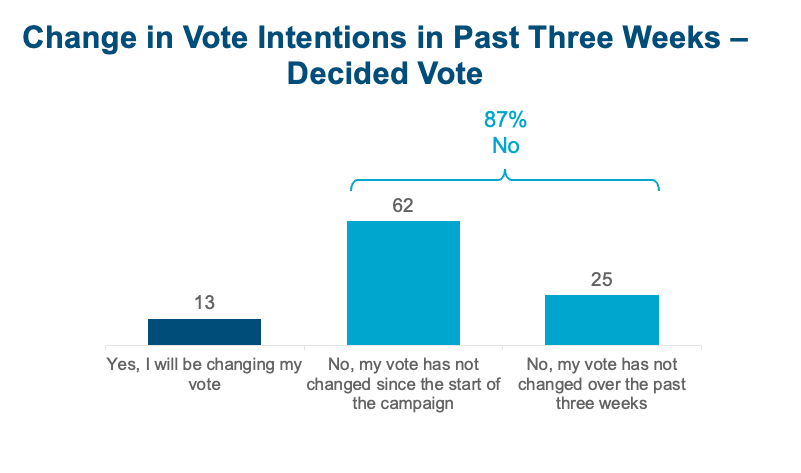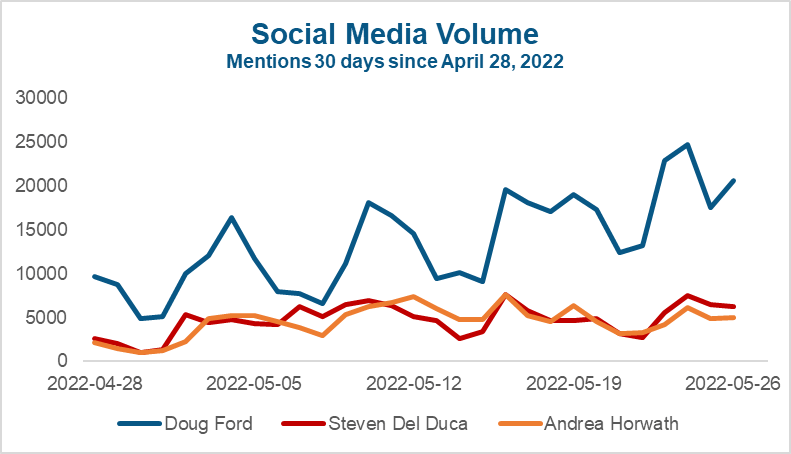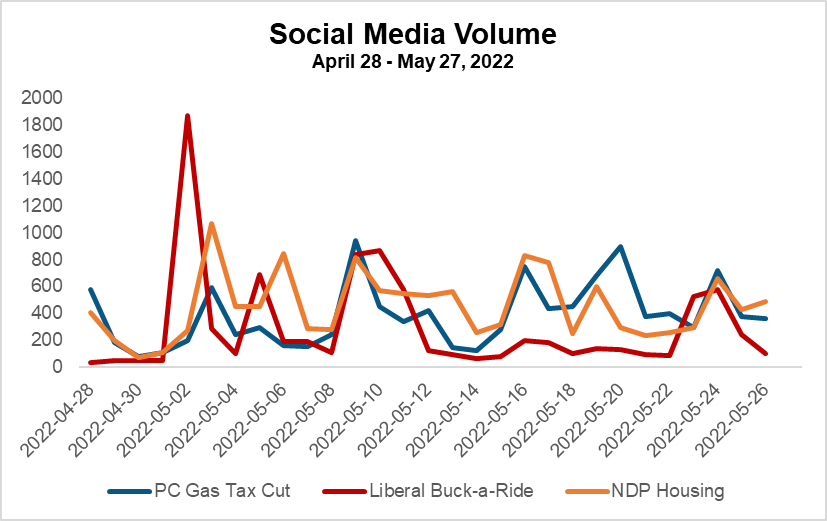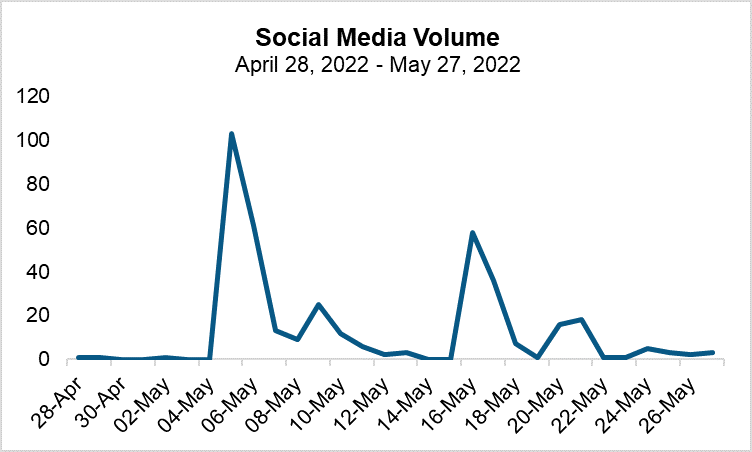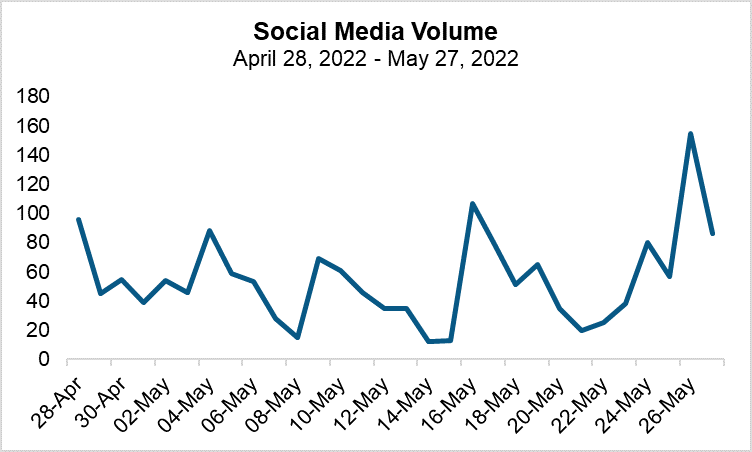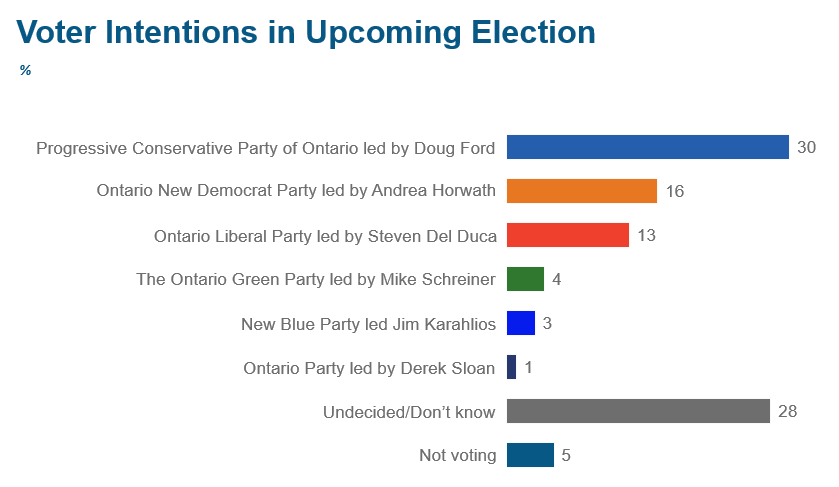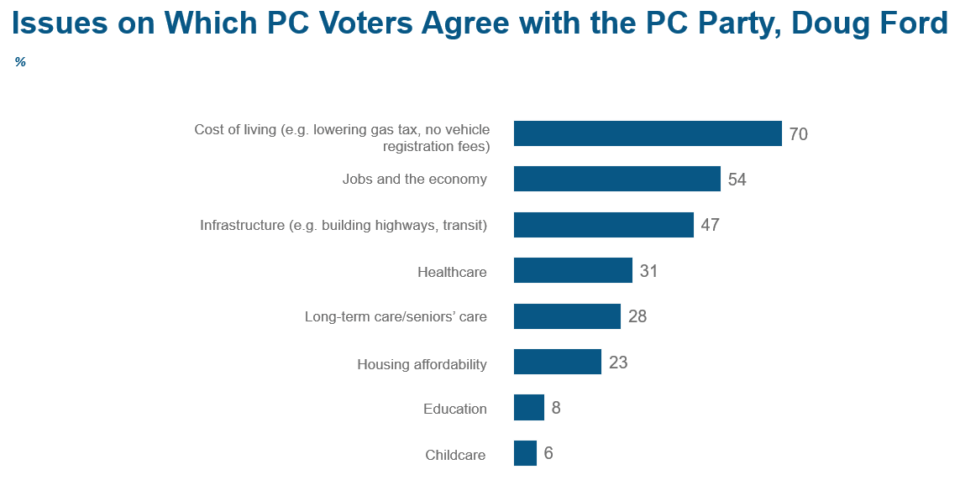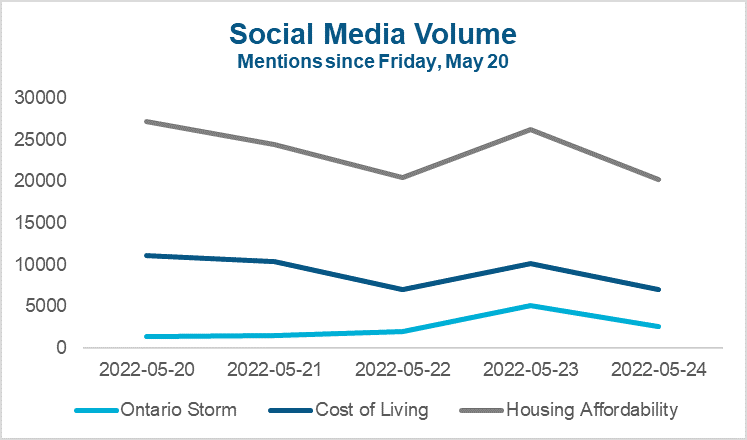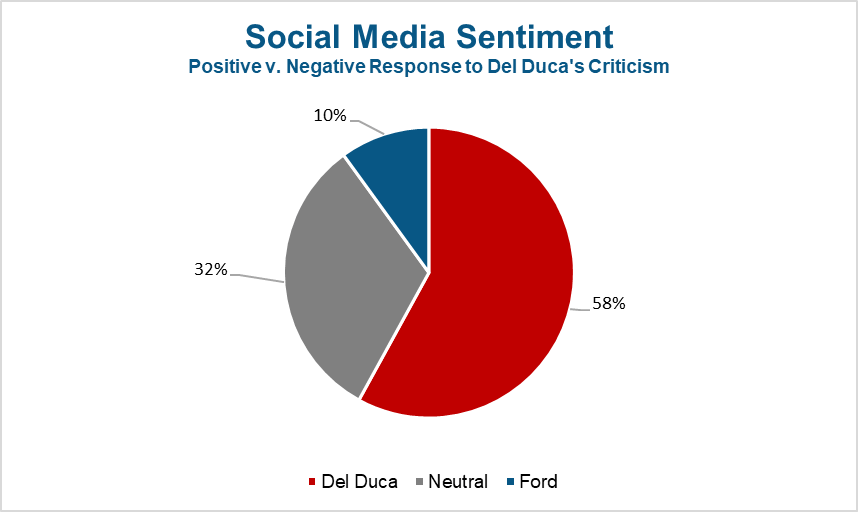The results are in for the 2022 Ontario provincial election, and the Ford government has won another majority government with more seats.
Here are the results:

One of the more shocking results last night were reports of historically low voter turnout. Early data from Elections Ontario suggests the 2022 provincial election had the worst voter turnout in history, with only 43 per cent of Ontarians casting their ballot. In comparison, the 2018 provincial election saw a 57 per cent voter turnout, the highest in over a decade.
Unlike in 2018, this election lacked strong debate over ideological values and differences. The PCs focused on wedging the opposition on issues of affordability and building large infrastructure projects like highways, while the NDP chose to focus on health care. On the other hand, the Liberals started off with a strong affordability push with their buck-a-ride and tax-free prepared foods policies, but that lead diminished as they pivoted to talking about education and handguns – priorities that were not as top of mind for provincial voters as the cost of living.
In the end, the opposition parties failed to paint Ford as a poor choice for re-election and present a compelling alternative. The voters have spoken: they do not want change. Likely worn out from the years-long pandemic, Ontarians have trusted Doug Ford to continue leading the province through the post-pandemic economic recovery. He campaigned to “Get It Done” and say “yes” instead of “no” to building up Ontario, and it paid off in spades.
What’s Next
With very little shakeup to the roster of MPPs, we anticipate Ford will be slow to return to “business as usual.” They will take their time to get the right talent in place and brainstorm new ideas for the new mandate. Here is what you can expect next as the returning government gets back to work:
Cabinet Picks
In a press conference this morning, Ford confirmed that there was no rush to appoint the new Cabinet or call back the legislature to lay out a Speech from the Throne and to re-introduce the spring budget.
With all cabinet ministers re-elected, we can expect many returning faces. It is expected Peter Bethlenfalvy will continue in his current role of Finance Minister. Notably missing in the new government is former Minister of Health Christine Elliott, who opted not to seek re-election. With health care comprising over 50 per cent of the provincial budget, Ford will look to appoint a veteran minister to the portfolio.
Government Priorities
In his victory speech, Ford laid out clear priorities that are likely to form the basis of his forthcoming Speech from the Throne. Strengthening Ontario’s economy will be the focus of government, with plans to further invest in key infrastructure such as highways, transit, and Ring of Fire development. Ford also committed to invest in Ontario’s auto sector and technology industries to grow jobs.
Before the election, the 2022 Ontario budget was unveiled but was not passed before legislature adjourned. Ultimately the budget served as a campaign platform for the PCs, with commitments to revisit planned funding promises if re-elected. Ford announced the government will be reintroducing the budget almost as-is, with the possibility of a few adjustments. For example, Ford indicated that the government intends to deliver on its ad-hoc commitment on the campaign trail to increase the Ontario Disability Support Program benefits by five per cent and index increases to inflation thereafter. We will stay tuned to see when the government plans to pass the budget.
The Opposition
The results of the Ontario election spurred the unprecedented dual resignation of both Andrea Horwath, the NDP leader, and Steven Del Duca, the Liberal leader. While the NDP earned official opposition status, they lost nine seats and pressures from within the party would not allow Horwath to continue on as leader for the next election if she did not deliver. In the case of the Liberals, they were not able to gain official party status under the current system (12 seats).
As a result, the NDP and Liberals will enter a race for leadership after a disappointing election for the parties. It is expected contenders from within the current NDP caucus will come forward over the coming days to declare their intention to run for the leadership.
Key Races
This election may not be the most notable in recent memory. However, there were some local results that have politicos talking:
- The PCs dominated the Greater Toronto Area, with Liberal leader Steven Del Duca losing his riding in Vaughan-Woodbridge to the PC incumbent Michael Tibollo.
- The PCs gained seats in key NDP ridings, including three ridings in Brampton (East, Centre, and North) and two in the Windsor region (Essex and Windsor-Tecumseh).
- Despite a disappointing overall result, the Liberal party won two former NDP seats in Beaches-East York and Kingston and the Islands.
- Although the Green Party keep their one seat in Guelph, the party made significant gains in Parry Sound-Muskoka, which went to PC candidate and former AMO president Graydon Smith.
- Retired Toronto Police Chief and PC candidate Mark Saunders lost the race in Don Valley West to Liberal Stephanie Bowman, maintaining the former riding of Kathleen Wynne for the party.
- George Pirie, the former mayor of Timmins and PC candidate, won over the 32-year NDP incumbent Gilles Bisson in the Timmins riding and has spurred rumours of a cabinet appointment. The PCs also picked up Thunder Bay—Atikokan for the first time since the creation of the riding in 1999.
- Former PC executive assistant Bobbi Ann Brady won the riding of Haldimand-Norfolk and has become the province’s only Independent MPP.
- Candidate Amanda Simard, who crossed the aisle to join the Liberals from the PC party, lost in Glengarry-Prescott-Russell to PC candidate Stephane Sarrazin.
- Three former Toronto city councillors were successful last night, with Michael Ford (PC, York South-Weston), Kristyn Wong-Tam (NDP, Toronto Centre) and Mary-Margaret McMahon (Liberal, Beaches-East York) elected.
- Kate Graham, a former Liberal leadership candidate, finished third place in London North Centre, with NDP incumbent Terence Kernaghan winning the riding.
In the coming days, the Navigator team will be conducting comprehensive polling and in-depth analysis of the newly elected government and election results. Navigator is also available to ensure your business is well-positioned and engaging with the government and new cabinet. If you have questions, please reach out at info@navltd.com.

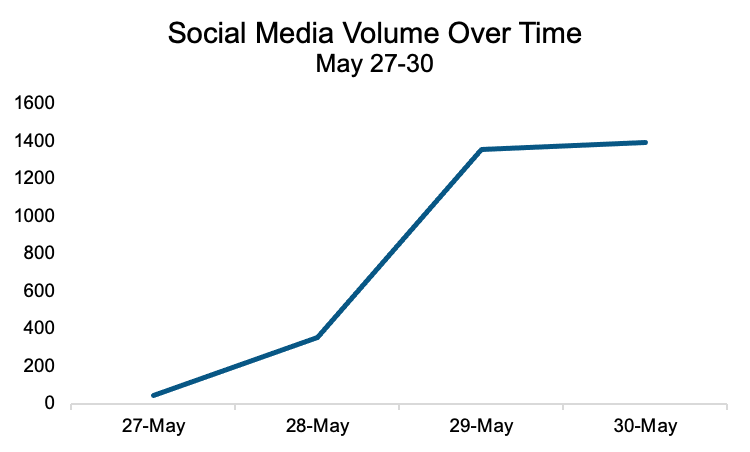
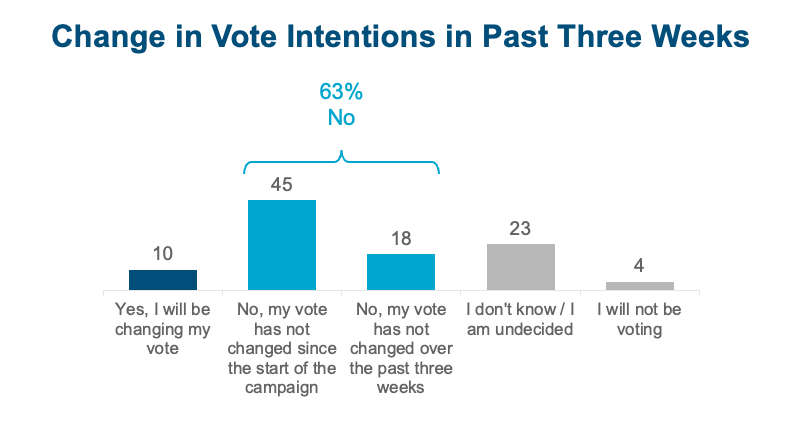 Among decided voters, only 13 per cent of people said their intention had changed since the start of election period.
Among decided voters, only 13 per cent of people said their intention had changed since the start of election period.